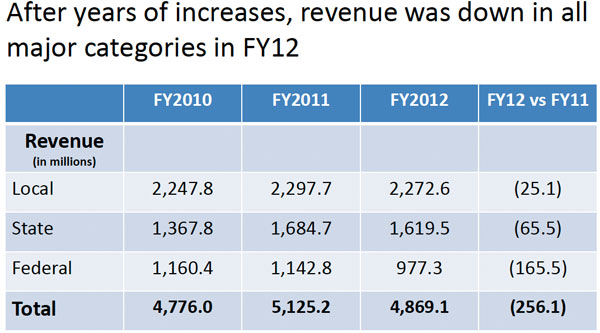Mayor Emanuel came out today in support of a property tax hike ($84 per year on a $250,000 house) to bolster the Chicago Public Schools budget and prevent deeper cuts outlined in the proposed budget. It’s a traditional way of balancing the books in Chicago, but at first glance a bit awkward for the new mayor:
The mayor previously said that a tax hike is off the table to close a $635 million shortfall at City Hall because there are too many inefficiencies in city government.
But it’s less clear whether a CPS-related hike ever came off the table. In an April 15 Trib report in which the possibility of a tax hike for CPS was floated, the then-mayor-elect merely said that talk about the possibility was premature until CPS presented a budget. Lawrence Msall of the Civic Federation, a regular voice in Chicago financial politics, struck a similar note with the CNC.
But it’s always worth remembering that CPS, and the city, don’t operate in a vacuum. Down at literally the end of each of those articles were two very important points. From the Trib:
Last year, then-CPS chief Ron Huberman’s initial budget plan called for raising class sizes in high schools, cutting about 500 teaching jobs and tapping into the district’s reserve fund. But an influx of more than $100 million in stimulus money and a one-time federal jobs bill allowed CPS to delay such tough decisions.
That federal money is not available this time, fueling speculation among principals and administrators that this year’s cuts will be severe.
And the CNC (emphasis mine):
Much of the schools’ deficit arises because the district has not been able to replace federal stimulus money that helped it meet its budget last year. The state also owes Chicago Public Schools $291 million in back payments, Ms. Bond said.
The numbers:

That revenue decrease is about $15 million higher than the proposed-budget deficit. When the federal government cuts back, deficits trickle down.


